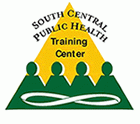
Risk Communication: Best Practices for Communicating Effectively in High Stress Situations
Course Description:
Risk communication is an interactive process of exchange of information and involves multiple messages about the nature of the risk. During high stress, emotionally charged situations, communication requirements change dramatically. This course provides practical, applicable, and effective communication solutions. This course uses a number of case studies to illustrate risk communication strategies.
Target Audience
Academic Faculty/Staff, Federal Government Employees, State Government Employees, Local Government Employees, Non-Government Employees and Students
Learning Objectives
- Recognize how high stress situations change the rules of communication
- Develop strategies to enhance trust and credibility
- Formulate risk communication messages responsive to stakeholder concerns
Instructor:

Vincent T. Covello, PhD
Director, Center For Risk Communication
Dr. Vincent T. Covello, founder and Director of the Center for Risk Communication, is a nationally and internationally recognized trainer, researcher, consultant, and expert in crisis, conflict, change and risk communications. Over the past twenty-five years, he has held numerous positions in academia and government, including Associate Professor of Environmental Sciences and Clinical Medicine at Columbia University. Prior to his joining the faculty at Columbia, Dr. Covello was a senior scientist at the White House Council on Environmental Quality in Washington, D.C., a Study Director at the National Research Council/National Academy of Sciences and the Director of the Risk Assessment Program at the National Science Foundation.
Dr. Covello received his doctorate from Columbia University and his B.A. with honors and M.A. from Cambridge University in England. He is on the editorial board of several journals and is the Past President of the Society for Risk analysis, a professional association with over 2,500 members. Dr. Covello has authored or edited over 25 books and over 75 published articles on risk assessment, management, and communication.
Available Credit
- 2.00 Participation/CETulane Professional and Continuing Education (PaCE) awards 2.00 hour(s) of credit for completing Risk Communication: Best Practices for Communicating Effectively in High Stress Situations
Price
Required Hardware/software
System Settings
This course is designed to work most effectively if your computer and internet connection meet certain minimal requirements. This course can be accessed using a Windows 10 PC or a Mac with High Sierra1, Mojave, or Catalina. Pop-up blockers should be disabled when viewing the course. Internet Explorer 11 (for Windows 10), or the current version of Google Chrome, Mozilla Firefox, or Apple Safari (for Windows 10 and or Mac) is required. Many of our courses require Java and JavaScript enabled.
Links to External Websites
Links to websites outside this course will open in a new window or tab. Some browsers may minimize the course window. If this occurs, maximize the course window to return to the course.
Adobe Acrobat Reader (for desktops and laptops)
Adobe Acrobat Reader is required to access some documents in this course. If you need to download a free copy of Acrobat Reader, click here.
Internet Connection Speed
A minimum download speed of 1.5 Mbps is recommended for an optimal experience, which is commonly the speed associated with a basic DSL or a cellular/satellite connection. A faster connection, such as cable or fiber service, with further enhance your online experience. A Wi-Fi connection is generally acceptable, but it is dependent upon one of the two services mentioned above. You can check your internet connection speed at http://www.speedtest.net/.

 Facebook
Facebook X
X LinkedIn
LinkedIn Forward
Forward